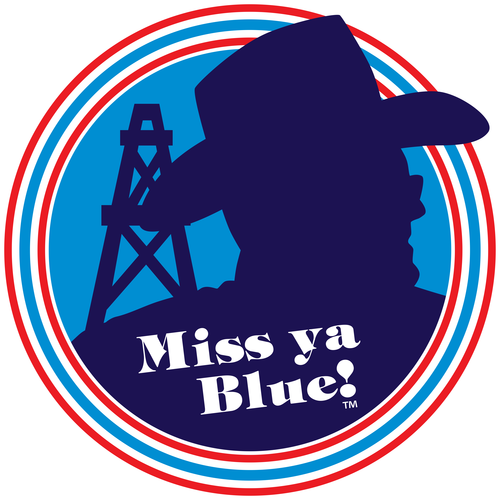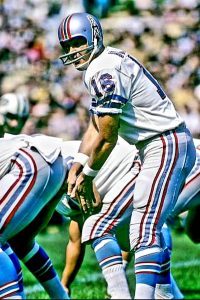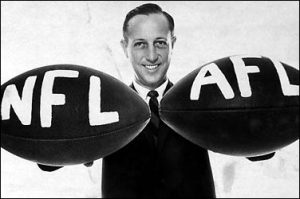Slingin’ Sammy Baugh: The Fourth Head Coach in Oiler History
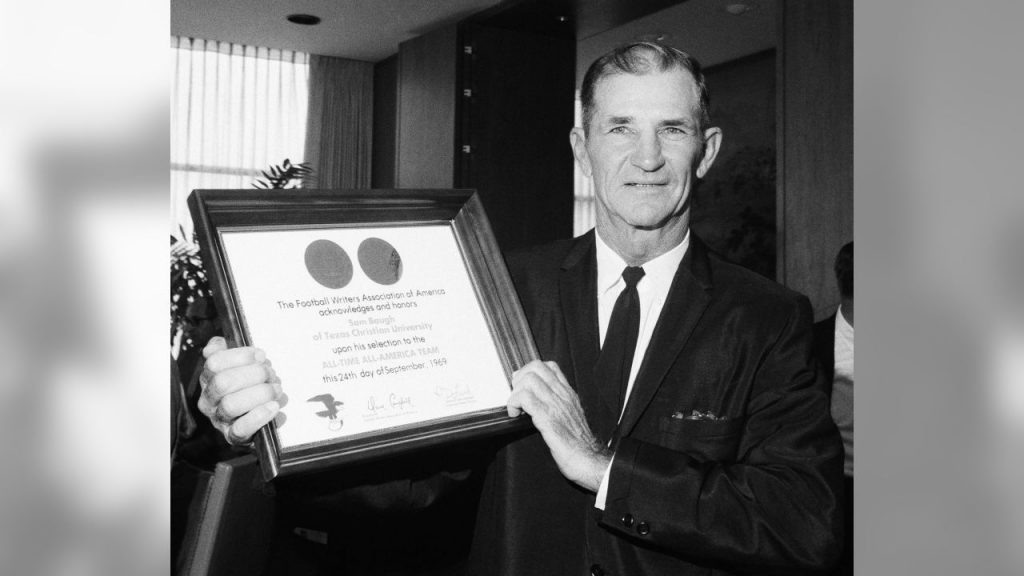
Back in the olden football days of leather helmets, no facemasks, and not many forward passes, along came one Samuel Adrian “Sammy” Baugh to revolutionize the sport.
Baugh was born on March 17, 1914, in Temple, Texas.
He attended Sweetwater High School and played quarterback, spending hours throwing a football through a swinging car tire while running.
Even though Baugh practiced throwing the football quite a bit, he practiced punting the football even more, preparing himself to be a multidimensional player. Those efforts later paid off in major ways.
For most of his young life, Baugh wanted to be a professional baseball player. In fact, he almost accepted a scholarship from Washington State University to play baseball.

In a twist of fate, Baugh hurt his knee while sliding into second base during a game, and his scholarship to Washington State fell through.
However, Texas Christian University Head Football Coach Dutch Meyer recruited Baugh to Fort Worth, where he would play football and baseball for TCU.
While at TCU, Baugh threw 587 passes for 39 touchdowns and was named twice to the All-American team in 1935 and 1936.
He led the Horned Frogs to two bowl victories over LSU in the Sugar Bowl and over Marquette in the Cotton Bowl, where he won an MVP.
It was also at TCU where he earned the nickname Slingin’ Sammy, but that happened on the diamond, not the gridiron.
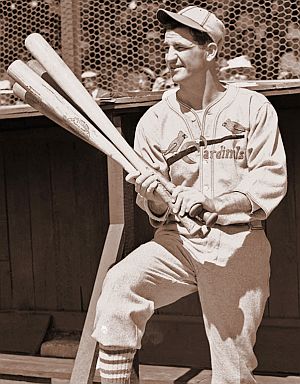
spring training camp in 1937
Baugh played third base and could sling the ball on a rope to first base with little dip in his throw or any hesitation in his windup.
In the spring after his senior season, the Washington Redskins of the National Football League offered Baugh a $4,000 contract to play for them.
Still enthralled by the notion of playing professional baseball, Baugh remained unsure about continuing to pursue a future in pigskin play and did not decide on the contract until after the 1937 college all-star game.
During his football hiatus, he bounced between a few minor league teams, but, unhappy with his sparse playing time, he finally signed the football contract with Washington.
Fate thus worked in Baugh’s favor, as he went on to have a legendary Hall of Fame career.
By the time he retired, Baugh had set 13 NFL records at three different positions (quarterback, punter, and defensive back).
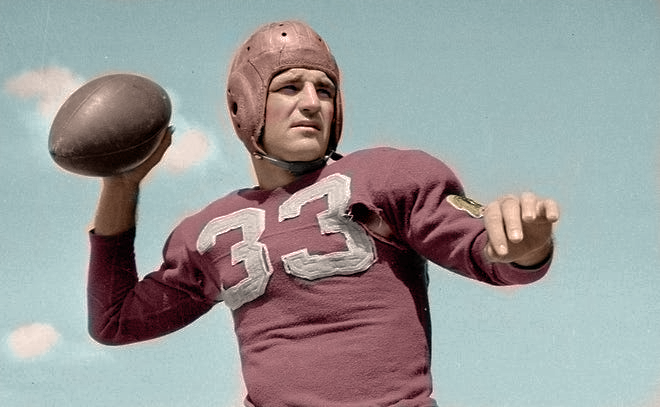
Two of his quarterbacking records still stand: most seasons leading the league in passing (six, tied with Steve Young) and most seasons leading the league with the lowest interception percentage (five).
He remains fourth in highest single-season completion percentage (70.33%), third in most seasons leading the league in yards gained (four), and first in most seasons leading the league in completion percentage (seven).
As a punter, Baugh retired with the NFL record for highest career punting average (45.1 yards-per-punt), a feat that has only been bested by Shane Lechler (46.5 yards-per-punt).
His most distinctive record is probably when he lead the league in passing yards, interceptions, and punting in 1943.
Baugh was selected as a charter member of the Pro Football Hall of Fame in 1963 and was named to the NFL Two-Way and NFL 75th Anniversary teams in 1994.
Interestingly, while playing professionally in Washington, Baugh and teammate Wayne Milner served as collegiate assistant coaches for Catholic University of America.
This experience gave him the opportunity to transition to a coaching career after his playing days ended in 1952.
Baugh was named head coach at Hardin-Simmons University in 1955. He accrued a 23-38 record over five seasons and enjoyed his most successful campaign in 1958, winning the Border Conference championship and making an appearance in the Sun Bowl.
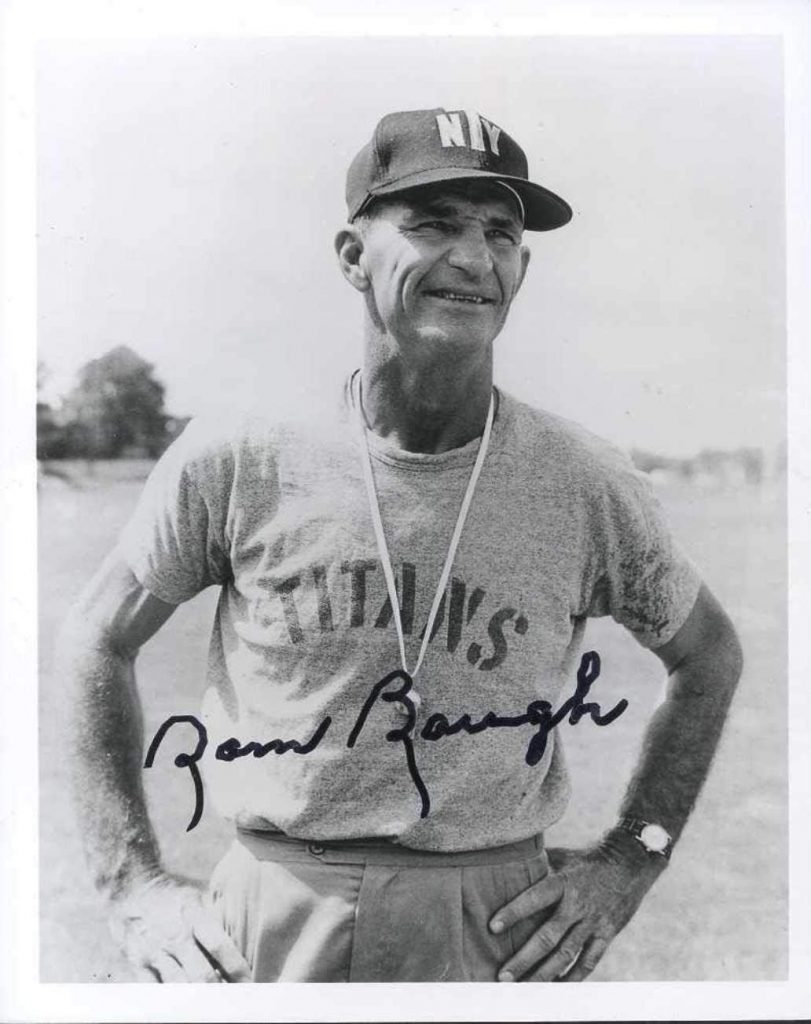
In 1960, Baugh was named the first head coach of the Titans of New York AFL franchise, where he coached until 1961, compiling a 14-14 record over two seasons.
After serving as an assistant with the University of Tulsa in 1963, Baugh was named the head coach of the Houston Oilers in 1964, becoming the franchise’s fourth head coach in five seasons.
During the 1964 season, the Oilers got off to a 2-1 start before losing their next nine games while only scoring 142 points and allowing 251, limping to a 4-10 record.
Prior to Houston’s final game against Denver, Baugh abruptly resigned his post, stating that a head coaching job demanded full‐time attention, and that he could not spare that much time from the operation of his ranch.
His resignation came despite a previous vote-of-confidence from Oilers owner Bud Adams, as well as previous enthusiasm about the team’s future.
Strangely, Baugh returned to the Oilers 1965 as an assistant coach under Hugh “Bones” Taylor before moving on to serve in a similar role with the Detroit Lions in 1966.
Although he did continue to serve as a special scout for the Lions after the 1966 season, Baugh retired from coaching to tend to his 7,667-acre Double Mountain Ranch.
According to Baugh’s son, the football legend enjoyed his football career, but he enjoyed being on his ranch much more, adding that if his dad could have lived his life over again, he probably wouldn’t have played sports at all.
On December 17, 2008, Baugh died after numerous health issues, including Alzheimer’s disease, at Fisher County Hospital in Rotan, Texas. He is interred at Belvieu Cemetery in Rotan, where the main boulevard is named Sammy Baugh Avenue.
Dillon Holloway is a native Mississippian currently residing in central Oklahoma. He is a rabid football fan and a historian of the sport. He is a husband, a military officer, volunteer teacher and football coach, and emerging guest speaker. He graduated from the University of Mississippi with a bachelor’s in English and a minor in aerospace studies. He played football from pee-wee through high school, winning the 2A Midsouth Association of Independent Schools (MAIS) state championship and was named first-team all-district guard in 2011. Since his first football practice, he has always made the sport a part of his life in some fashion, and writing for Miss Ya Blue! allows him to continue to do so.
#houston #oilers #htown #houstontx #houstonoilers #nfl #astrodome #sports #star #history #football #luvyablue #missyablue #texas #houstonblogger
